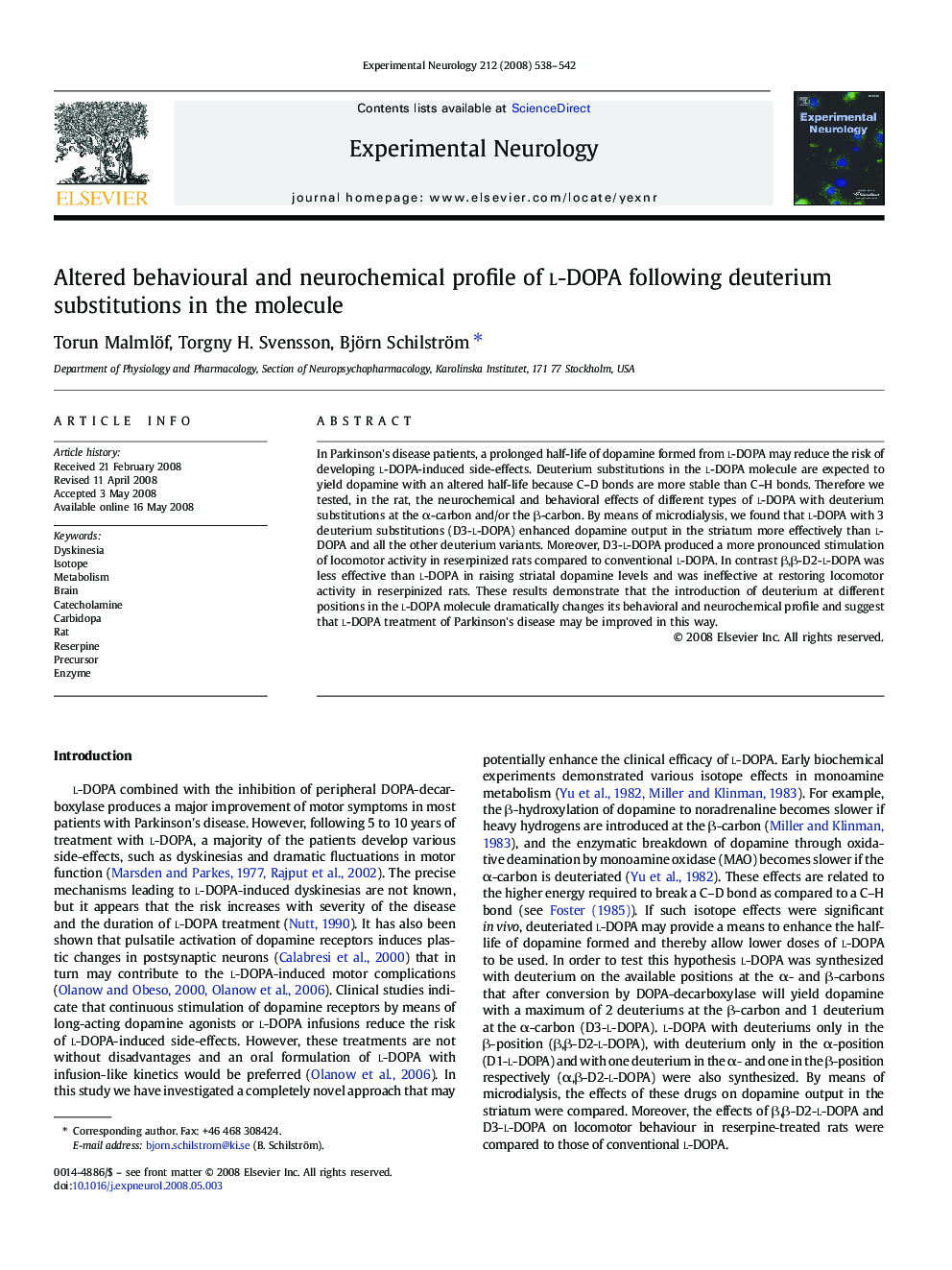| Article ID | Journal | Published Year | Pages | File Type |
|---|---|---|---|---|
| 3056580 | Experimental Neurology | 2008 | 5 Pages |
Abstract
In Parkinson's disease patients, a prolonged half-life of dopamine formed from l-DOPA may reduce the risk of developing l-DOPA-induced side-effects. Deuterium substitutions in the l-DOPA molecule are expected to yield dopamine with an altered half-life because C-D bonds are more stable than C-H bonds. Therefore we tested, in the rat, the neurochemical and behavioral effects of different types of l-DOPA with deuterium substitutions at the α-carbon and/or the β-carbon. By means of microdialysis, we found that l-DOPA with 3 deuterium substitutions (D3-l-DOPA) enhanced dopamine output in the striatum more effectively than l-DOPA and all the other deuterium variants. Moreover, D3-l-DOPA produced a more pronounced stimulation of locomotor activity in reserpinized rats compared to conventional l-DOPA. In contrast β,β-D2-l-DOPA was less effective than l-DOPA in raising striatal dopamine levels and was ineffective at restoring locomotor activity in reserpinized rats. These results demonstrate that the introduction of deuterium at different positions in the l-DOPA molecule dramatically changes its behavioral and neurochemical profile and suggest that l-DOPA treatment of Parkinson's disease may be improved in this way.
Related Topics
Life Sciences
Neuroscience
Neurology
Authors
Torun Malmlöf, Torgny H. Svensson, Björn Schilström,
